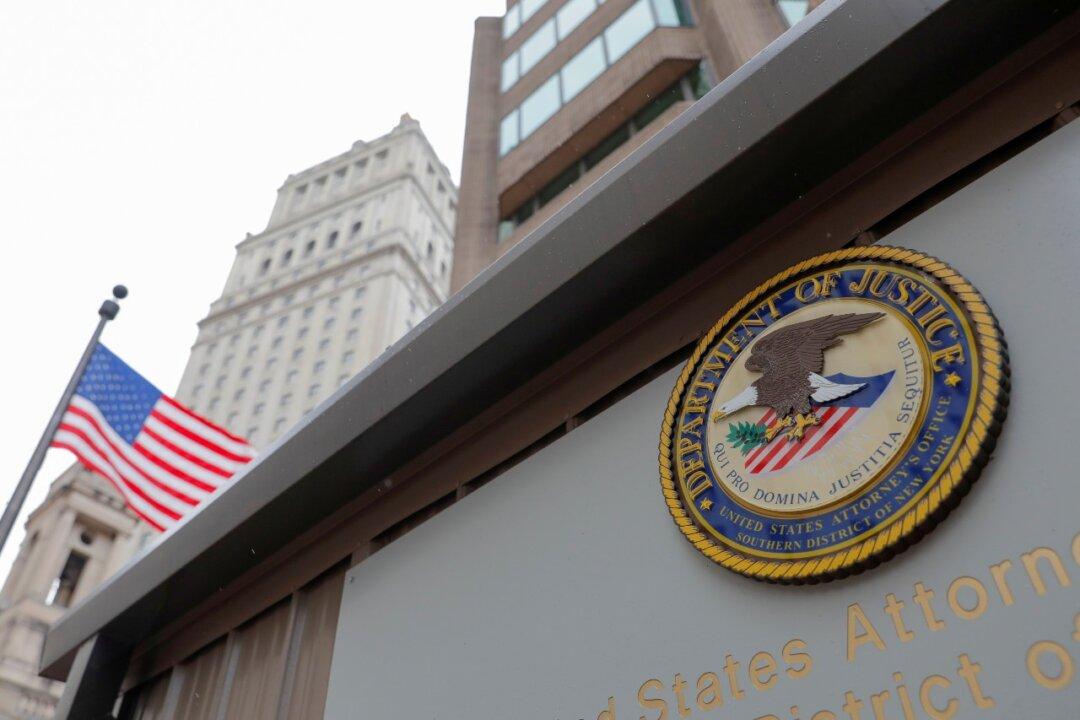The Justice Department told a federal court on Monday that it intends to partially appeal a ruling requiring the release of a legal memorandum prepared by the Trump-era Justice Department for then-Attorney General William Barr to assist in his decision on whether to prosecute then-President Donald Trump for obstruction of justice during the Mueller special counsel investigation.
DOJ attorneys on late Monday filed a “Notice of Appeal“ and a request to partially stay the court order while the case plays out. In their request, the attorneys said they were willing to release the entirety of the first page and a section of the March 24, 2019, internal memo but asked for the other redacted portions to remain hidden from the public.




